A New Fair Trade Organization - IELTS Reading Answers
11 min read
Updated On
-
Copy link
Prepare effectively with A New Fair Trade Organization IELTS Reading Answers. This blog includes solutions with location and explanation to sharpen comprehension, with tips to handle reading questions & maximize your chances of scoring band 7+ in reading.
Table of Contents

Limited-Time Offer : Access a FREE 10-Day IELTS Study Plan!
Regular evaluation and score tracking are essential for consistent progress in the IELTS Reading test. To master this process, you need to start by practicing with single reading passages, like ‘A New Fair Trade Organization IELTS Reading Answers’, and learn how to complete IELTS Reading in less than an hour.
So, solve the questions with the passage ‘A New Fair Trade Organization Reading Answers’ given below, check your answers against the provided location and explanations, and improve your performance in the reading module.
Passage for A New Fair Trade Organization Reading Answers
You can use the 'A New Fair Trade Organization' Reading Answers passage provided below as practice for the IELTS reading exam. Go through the passage given below, and be prepared to solve similar IELTS Reading topics for General and Academic for the reading section.
You should spend about 20 minutes on Questions 1-13, which are based on the reading passage below.
A New Fair Trade Organization
1 Trade has so far proved ineffective in solving the major problems faced by most nations. However, the answer to the injustices of the existing trade regime is no trade, but fair trade.
2 The existing regime forbids poor nations from following the path taken by the rich. With the exceptions of Switzerland, Belgium and the Netherlands, all the nations that have become independently wealthy did so with the help of a mechanism economists call 'infant industry protection': defending new sectors from foreign competition until they are big enough to compete on equal terms. The textile industry in Britain, for example, on which the Industrial Revolution was built in the nineteenth century, was nurtured and promoted by means of tariffs (or trade taxes) and the outright prohibition of competing goods. Between 1864 and 1913, the US was the most heavily protected nation on earth. Only when these countries had established technological and commercial superiority did they suddenly discover the virtues of unimpeded competition.
3 For nations to develop direct competitions with countries with established industries is like learning to swim in a fast flowing river: You are likely to be swept away and drowned long before you acquire the necessary expertise. Your competitors have experience, legal rights and established marketing networks on their side; your infant industries have none of these. It is all but impossible, in other words, for poor nations to extract money from the rich unless they can safeguard some key parts of their economies.
4 Clearly, nations that are currently poor should be permitted to defend certain industries from foreign competition with the help of tariff barriers and subsidies. Rich nations, on the other hand, should be permitted neither to subsidize their industries nor to impose tariffs on imports. Nations should be forced gradually to lift their protections as they develop. So the first function of what we might call the Fair Trade Organisation (FTO) would be to lay down the rules governing the protection and privileges permitted at different stages of development.
5 A fair-trade system should, or so we should hope slowly push the world towards genuine free trade, which is likely to be the most equitable means of governing nations' relationships with each other. This system could provide a potent means by which the world could begin to move towards the economic equality that is an essential precondition for political equality. It would not, however, directly address some of the other critical problems that the people of poor nations confront - such as inadequate working conditions, environmental devastation and the inordinate power of the multinational corporations.
6 Many campaigners in the rich world have suggested that the best way to raise standards is to discriminate through tariffs or other measures against imports from countries where workers or the environment are mistreated. This approach has also been advocated by trades unions seeking to protect members' jobs from foreigners. Unsurprisingly, it is deeply resented by the very people it is supposed to help: the workers of the poor world.
If our purpose is to regulate international trade, then it surely makes sense to address the behavior, not of nation states, but of the multinational corporations operating between them. So a second function of the FTO could be to set the standards to which those corporations must conform. A corporation would not be permitted to trade between nations unless it could demonstrate that, at every stage of manufacturing and distribution, its own operations and those of its suppliers met the necessary standards.
7 If, for example, a food-processing corporation based in Europe wished to import cocoa from an African country, it would need to demonstrate that the plantation owners it bought from were not using banned pesticides expanding into protected forests or failing to conform to whatever other standards the FTO set. The company's performance would be assessed, at its own expense, by monitors accredited to the organization.
8 One other precondition of Justice is that producers and consumers should carry their own costs, rather than dumping them on other people. The monitors deployed by the FTO could determine whether or not companies are paying a fair price for the resources they use. Companies would, among other costs have to buy enough of a nations carbon quota to cover the fossil fuel they consume.
9 One of the many beneficial impacts of such full-cost accounting would be that everything that could be processed in the country of origin would be. No multinational company would export logs, coffee beans or cotton, as it requires far more (costly) energy to transport these bulky resources from one place to another that would be involved in exporting the finished products - furniture, instant coffee and T-shirts (all currently manufactured on the other side of the world). Those nations which are currently located in the export of raw materials would become the most favored locations for manufacturing.
10 Under this scheme, export growth comes to measure something quite different. At present, it represents a mixture of gains and losses, which are misleadingly compounded into a single figure. The loss or natural resources is 'added' to the genuine addition or value provided by the application of labor. The FTO system would effectively separate these measures. The extraction and export of natural resources would in most cases be accounted as a loss. The application of human labor would be measured as a gain. Nations would be able to see immediately whether they were being enriched or impoverished through trade. To introduce these measures in the face of the resistance of the world's most powerful governments and companies would require severe and unusual methods. But the goal of universal fair trade would permit the global economic leveling without which there can be no justice.
Questions for A New Fair Trade Organization Reading Answers
The passage, A New Fair Trade Organization Reading Answers, consists of 13 questions, which showcase two different IELTS Reading question types with examples. They are:
- IELTS Reading Multiple Choice Questions (Q. 1-6)
- IELTS Reading Summary Completion (Q. 7-13)
Questions 1-6
Choose the correct letter A, B, C, or D.
1 The writer refers to textile production in Britain to
A Point out how different industries were financed in the past.
B Show how unnecessary tariff barriers are for countries today
C Help the reader understand how infant industry protection works
D Compare European trade development with that of the United States
2 What is the writer's main point in the third paragraph
A Businesses will succeed if they learn from established companies.
B Detailed market research is often neglected in developing countries.
C You have to be prepared to adapt your products quickly to follow fashion
D New industries in poor countries will probably fail without protection
3 According to the writer, a fair trade system could have the effect of
A Improving safety in the majority of workplaces in the world.
B Prevent the continues destruction of endangered wildlife habitat
C Encouraging states to work together in a more even-handed way
D Making politicians agree to more representative systems of government.
4 What point is the writer making in the sixth paragraph?
A The trades unions aim to help foreign workers gain better conditions
B The trades unions are concerned about the effect of imports on local jobs
C Workers in poor countries are grateful for the trades unions' support
D Campaigners are right to suggest imposing tariffs against bad treatment
5 According to the writer, what is one of the benefits of full-cost accounting
A Factories would be set up and jobs created in the country of origin.
B Multinational companies would consume fewer natural resources
C The export of finished products around the world would decrease
D Countries would be able to keep their resources for the domestic market
6 What conclusion does the writer come to about the FTO system?
A It would help to combat injustice in its many different forms.
B It would be difficult to introduce but would be worth the effort
C States all over the world would earn more through trade as a result of it
D Multinationals would accept it because it measures exports more precisely
Questions 7-13
Complete the summary below.
Choose no more than two words from the passage for each answer.
Write the correct answer in boxes 7-10 on your answer sheet.
A proposal for Regulating Multinational Corporations the FTO would determine the 7________________ for the multinational corporations to follow. In this way, a multinational corporation would have to prove that all aspects of the way it produced its goods and the systems for their 8___________________ to customers were in line with FTO requirements. Similarly, it would need to satisfy the FTO that the processes employed by any 9 ________________ that it used were also acceptable.
As an illustration, in order to source cocoa from Africa, a corporation would have to ensure that no illegal 10________________ were being used by the 11________________________ during cultivation and that they had not taken over land from 12_________________________. It would not be sufficient for multinational corporations to say that these points had been checked. Their conduct would have to be inspected by 13__________________appointed by TFO.
Learn quick methods to conquer passages within 20 minutes.
Join our FREE IELTS webinars!
Answers for A New Fair Trade Organization with Location and Explanations
It's time to double-check your responses to the A New Fair Trade Organization IELTS Reading passage using the answer key provided below. Don’t forget to create strategies based on the feedback from this practice and master IELTS Reading question types for a high IELTS band score.
| Question number | Answer | Explanation |
|---|---|---|
| 1 | C | Paragraph 2 states that the “textile industry in Britain, for example, one which the Industrial Revolution was built in the nineteenth century, was nurtured and promoted by means of tariffs.” This line helps to convey to the reader how in fact, industry protection works. Hence, the correct answer is “C.” |
| 2 | D | In paragraph 3, the author mentions that “nations to develop direct competitions with countries with established industries is like learning to swim in a fast-flowing river: you are likely to be swept away and drowned long before you acquire the necessary expertise.” Moreover, it is all but impossible, in other words, for poor nations to extract money from the rich unless they can safeguard some key parts of their economics.”It means that new industries in poor countries will probably fail without protection. Hence, the correct answer is “D.” |
| 3 | C | A line in paragraph 4 states that “Fair Trade Organisation (FTO) would lay down the rules governing the protection and privileges permitted at different stages of development.” Since FTO lays down the rules, it signifies that the effect makes politicians agree to more representative systems of governments. Hence, the correct answer is “C.” |
| 4 | B | According to paragraph 6, “approach has also been advocated by trades unions seeking to protect member’s jobs from foreigners.” Through the above line, we can deduce that the writer shows that train unions are concerned about the effect of imports on local jobs. Hence, the correct answer is “B.” |
| 5 | A | The second line of paragraph 9 conveys that “one, many beneficial impacts of such full-cost accounting would be that everything that could be processed in the country of origin would be.” The beneficial impact is that everything could be processed in-country, it means the writer is trying to discuss that factories would be set up and jobs created in the country of origin. Hence, the correct answer is “A.” |
| 6 | B | Paragraph 10 provides the information that “to introduce these measures in the face of the resistance of the world’s most powerful governments and companies would require severe and unusual methods. But the goal of universal fair trade would permit global economic leveling without which there can be no justice.” From the above line, we can deduce that the FTO system is difficult to introduce but permitting the global economic levelling would be worth the effort. Hence, the correct answer is “B.” |
| 7 | rules | Paragraph 4 mentions that “Fair Trade Organisation (FTO), lay down the rules.” The term ‘lay down’ can be interpreted as determining. Therefore, we can deduce that the FTO would determine the rules. Hence, the correct answer is “rules.” |
| 8 | distribution | In paragraph 6, the author states that “corporations would not be permitted to trade between nations unless it could demonstrate that, at every stage of manufacturing and distribution.” The term demonstrates means to show or prove at every stage of distribution. Hence, the correct answer is “distribution.” |
| 9 | suppliers | According to paragraph 6, “and those of its suppliers met the necessary standards.” The term ‘met the necessary standards’ denotes that something is acceptable as it met the standard. Here, it’s referring to suppliers. Hence, the correct answer is “suppliers.” |
| 10 | Pesticides | Paragraph 7 states that “demonstrate that plantation owners it bought from were not using banned pesticides.” When an item is banned it’s considered illegal. So, here It is referring to ensuring that no illegal pesticides were being used. Hence, the correct answer is “pesticides.” |
| 11 | plantation owners | According to the second line of paragraph 7, “it would need to demonstrate that the plantation owners it bought from were not using banned pesticides, expanding into protected forests or failing to conform to whatever other standards the FTO set.” Here, we can infer that corporations have to ensure that no banned/ illegal pesticides are bought and used by plantation owners. Hence, the correct answer is “plantation owners.” |
| 12 | protected forests | Paragraph 7 mentions that “expanding into protected forests.” Here, it signifies that they had not taken over land from protected forests. Hence, the correct answer is “protected forests.” |
| 13 | monitors | The last line of paragraph 7 states that “the company’s performance would be assessed, at its own expense, by monitors accredited to the organisation.” The term assessed means to be inspected by monitors. Hence, the correct answer is “monitors.” |
Finally, reading samples from IELTS recent actual tests, such as A New Fair Trade Organization IELTS Reading Answers, is crucial. They will allow you to read faster, pinpoint where you struggle, and understand the different kinds of questions asked to test your reading comprehension. Consequently, if you continue to take these tests, the results you are seeking will be within your reach.
Check More IELTS Reading Answers
- Been There Done That: In Zero Gravity IELTS Reading Answers
- High Speed Photography Reading Answers
- How Baby Talk Gives Infant Brains A Boost IELTS Reading Answers
- Endangered Chocolate – IELTS Reading Answers
- Sustainable School Travel Strategy & Flu: The Facts – IELTS Reading Answers
- Testing Animal Intelligence Reading Answers
Practice IELTS Reading based on question types

Start Preparing for IELTS: Get Your 10-Day Study Plan Today!
Explore other Reading Actual Tests
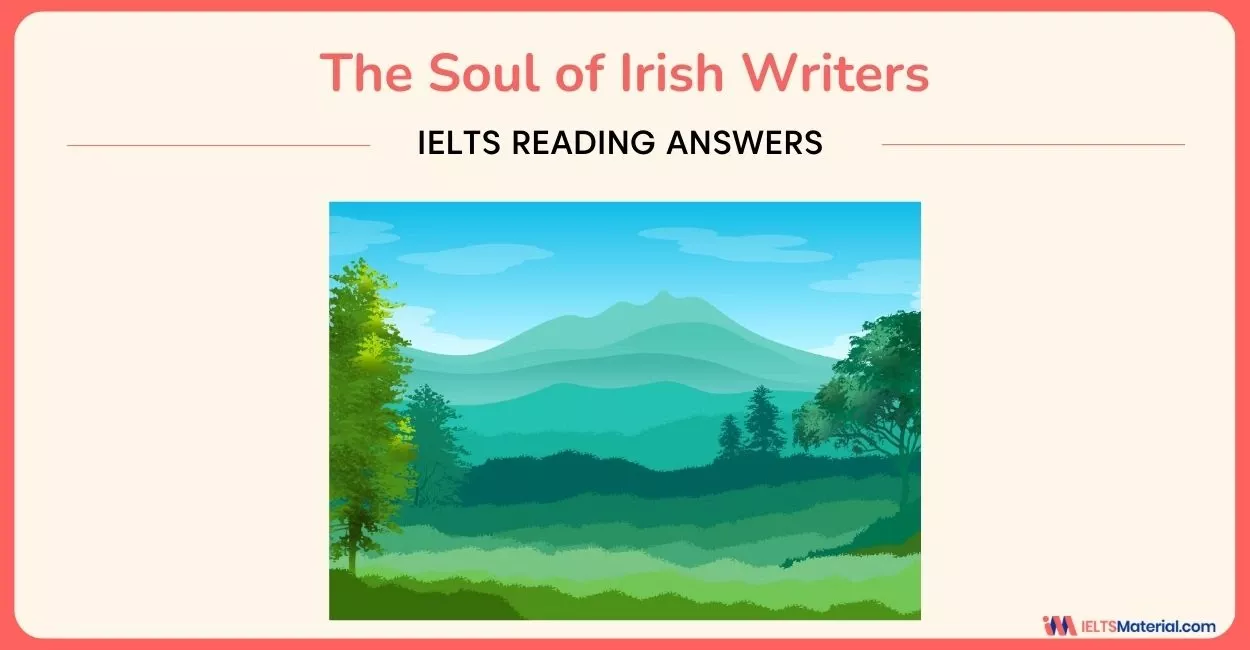
Kasturika Samanta
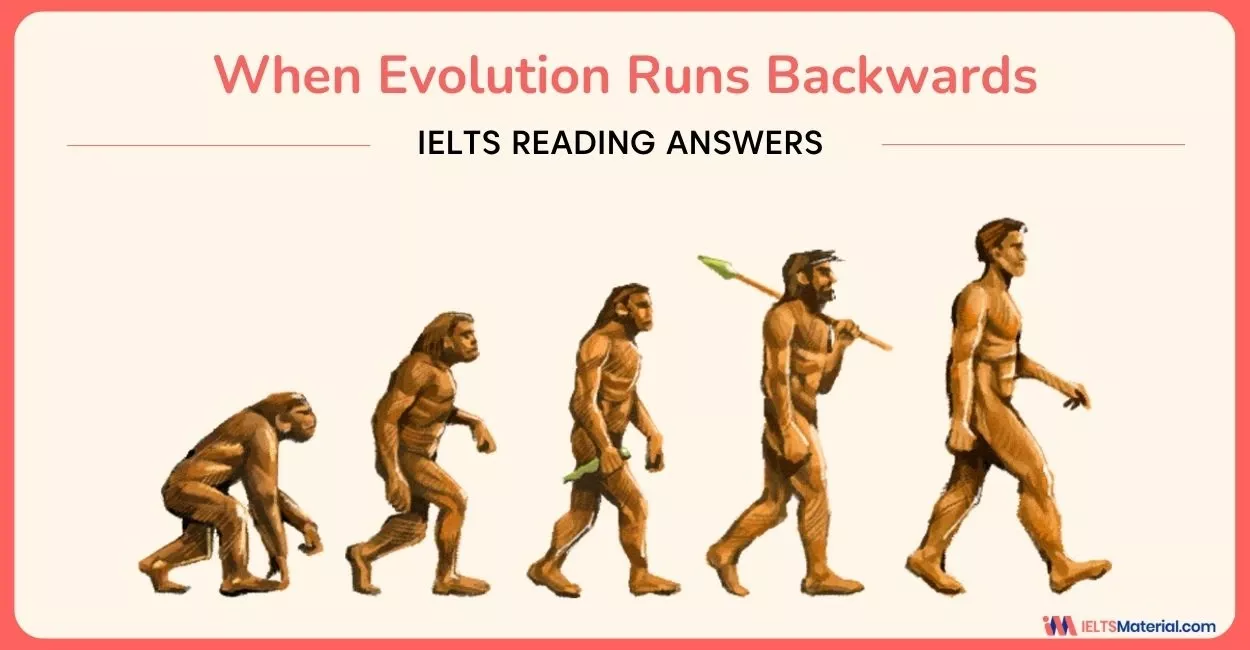
Kasturika Samanta
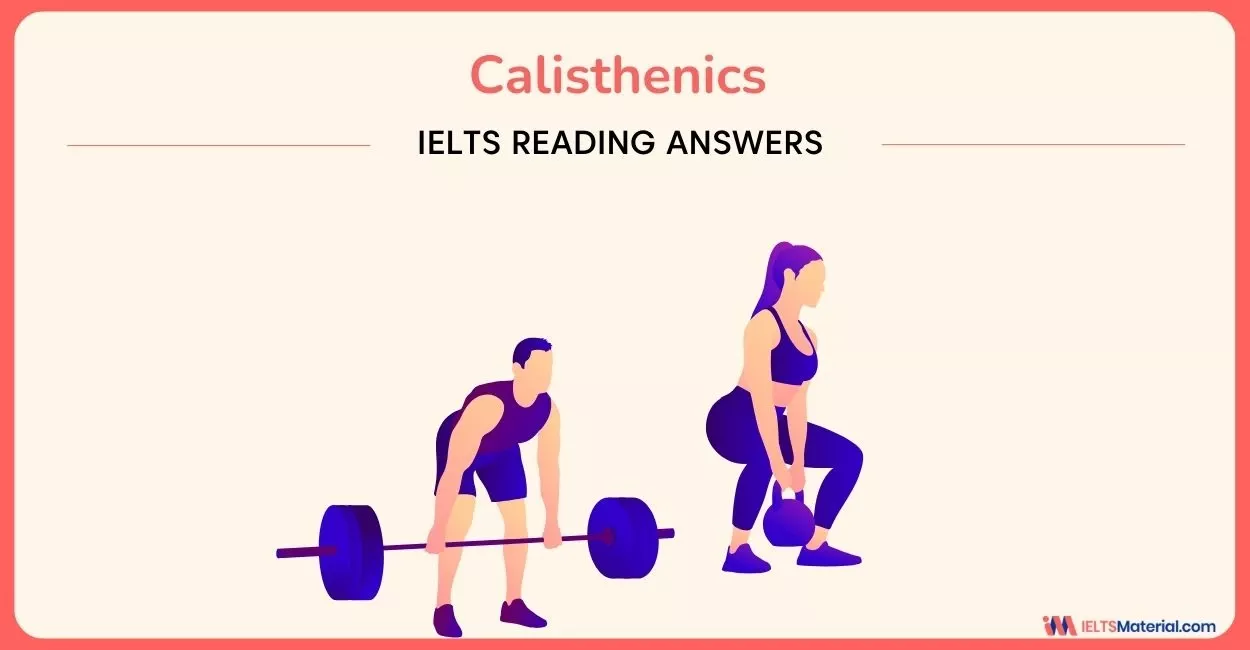
Kasturika Samanta
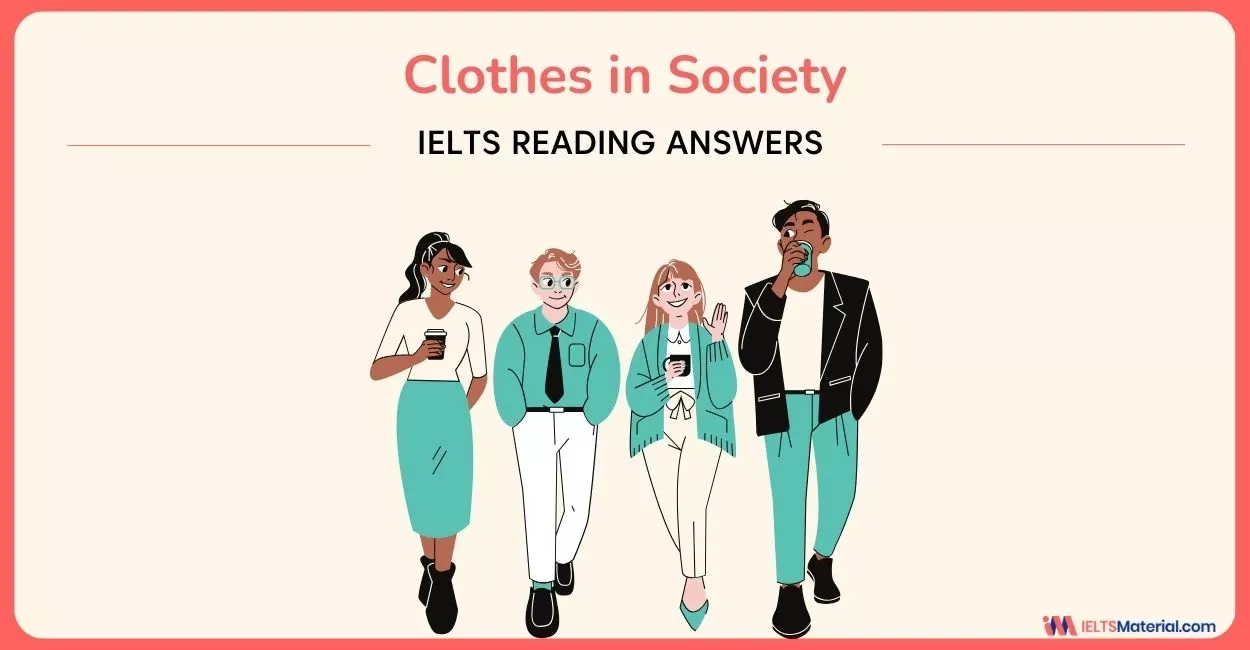
Kasturika Samanta
Recent Articles

Nehasri Ravishenbagam

Haniya Yashfeen

Haniya Yashfeen

Haniya Yashfeen
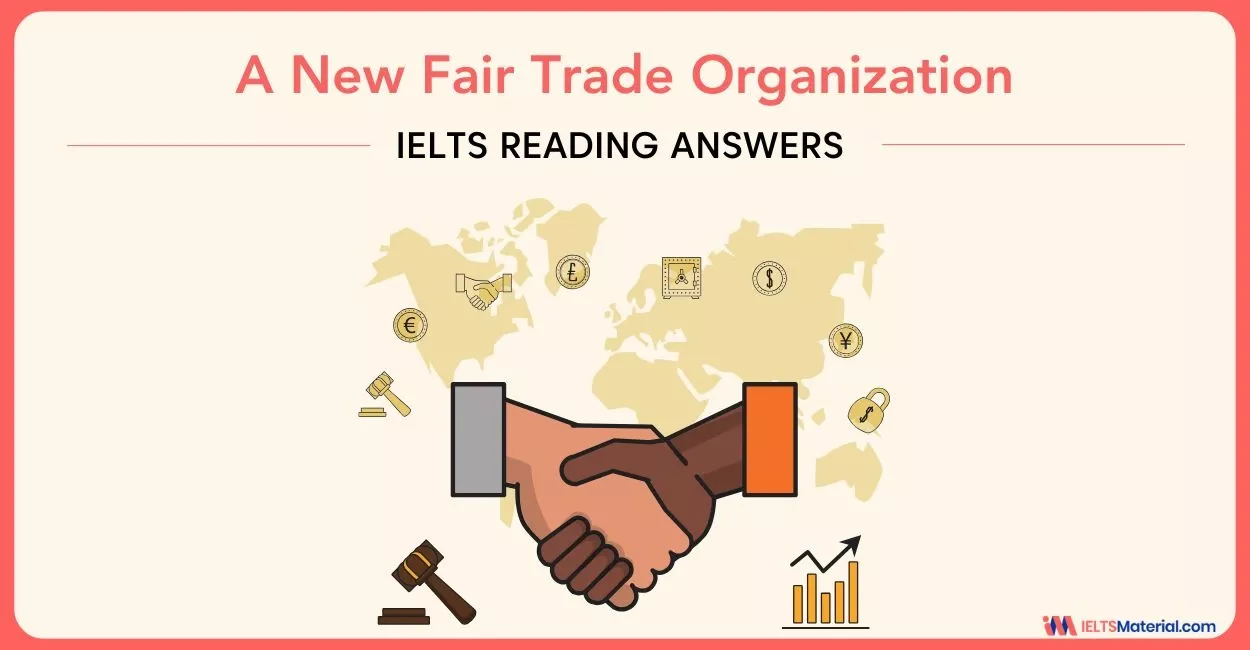



Post your Comments